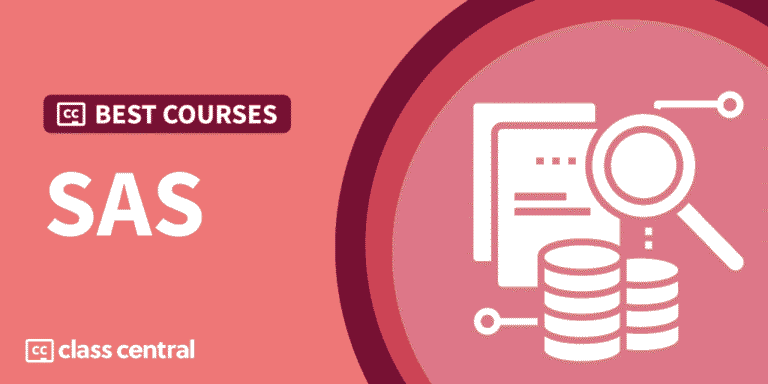

A quick scroll through r/MachineLearning reveals thousands of learners trying to learn math for ML. Why is that? Aspiring ML engineers get excited about building AI systems, only to discover that beneath every neural network lies a mountain of linear algebra, calculus, and statistics.
When Netflix suggests your next binge-watch, it’s using matrix factorization. When Tesla’s autopilot recognizes stop signs, it’s optimizing loss functions with gradients. ML engineers at big tech are getting paid to understand why these algorithms work—not just how to import them from scikit-learn.
Quite often, the gap between “I can follow a tutorial” and “I can build custom solutions” is mathematics. But most math courses will make you feel like you’re preparing for a PhD thesis, not a product launch. You end up proving theorems about vector spaces when you really need to understand why your model is overfitting.
That’s why I’ve curated these courses specifically for the practical learner. They teach the essential math—linear algebra, calculus, and probability—through the lens of actual ML applications.
Click on the shortcuts for more details:
- Top Picks
- Why Mathematical Foundations Matter for ML
- Why You Should Trust Us
- How We Made Our Picks and Tested Them
Here are our top picks
Click to skip to the course details:
Why Mathematical Foundations Matter for ML
The machine learning job market has a clear dividing line: those who understand the math, and those who don’t. Companies like Google, Meta, and OpenAI explicitly test mathematical fundamentals during interviews, with ML engineer positions at top tech companies requiring demonstration of mathematical reasoning beyond just coding skills.
According to Interview Node compensation data, ML engineers at FAANG companies who pass the mathematical theory portions of interviews receive offers averaging $150,000-$500,000, while those hired for ML roles in general plateau around $125,000-$197,000. The message is clear: mathematical fluency isn’t just academic—it’s financially rewarding.
But the real difference shows up in day-to-day work. When you treat ML libraries as black boxes, you’re essentially flying blind. Your model’s accuracy drops? You randomly tweak hyperparameters. Training gets stuck? You hope switching optimizers helps. This trial-and-error approach wastes time and computational resources while producing questionable results.
Understanding the mathematics changes everything. When gradient descent stalls, you recognize vanishing gradients and know exactly which activation functions or normalization techniques to apply. When your model overfits, you understand the bias-variance tradeoff mathematically and can implement appropriate regularization. When standard approaches fail, you can derive custom loss functions or design novel architectures because you understand the underlying principles.
Consider debugging: A model producing NaN values could stem from numerical instability in matrix operations, exploding gradients, or division by zero in custom metrics. Without mathematical knowledge, you’re guessing. With it, you trace the computation graph, identify the unstable operation, and implement a mathematically sound fix.
Why You Should Trust Us
Class Central, a Tripadvisor for online education, has helped 100 million learners find their next course. We’ve been combing through online education for more than a decade to aggregate a catalog of 250,000 online courses and 250,000 reviews written by our users. And we’re online learners ourselves: combined, the Class Central team has completed over 400 online courses, including online degrees.
How We Made Our Picks and Tested Them
Learning mathematics for ML requires bridging abstract theory with practical application. After analyzing hundreds of learner reviews across Reddit, Course Report, and specialized ML forums, we focused on courses that facilitate the cycle most successful learners follow: Application → Question → Theory → New Application.
We prioritized courses that:
- Present mathematical concepts through ML-motivated examples
- Offer hands-on implementation with NumPy and Jupyter notebooks
- Include visualization exercises that build geometric intuition
- Cater to different backgrounds—from self-taught programmers to complete beginners
We validated our picks through reviews when we couldn’t take the course, looking for evidence of learners successfully transitioning to advanced ML courses and applying mathematical knowledge to debug real problems.
Best for Beginners: Math for ML & Data Science (DeepLearning.AI)
- Level: Beginner
- Rating: 4.6 (2.6K ratings)
- Duration: 13 weeks (5 hours/week)
- Cost: Free to audit, Paid certificate
Luis Serrano’s visual-first approach has helped over 100,000 learners break through their mathematical barriers—many reporting their first “aha!” moments after years of struggle. This specialization is a series of 3 courses, and I don’t recommend you take them separately as you might have to answer questions based on previous courses during tests.
You’ll learn Linear Algebra (how neural networks transform data), Calculus (the engine behind gradient descent), and Probability/Statistics (quantifying uncertainty in predictions). Every concept flows directly into Python implementation—you’ll code a neural network’s forward pass while learning matrix multiplication, implement gradient descent while studying derivatives, and build a Naive Bayes classifier while exploring probability.
What sets it apart:
- Interactive visualization tools—manipulate 3D mathematical objects in your browser
- Custom Python notebooks that blend mathematical explanations with runnable ML code
- Math anxiety toolkit: Specific strategies for overcoming mathematical mental blocks
- Industry-aligned curriculum: Focuses on the 20% of math that powers 80% of ML
What you might not like:
- Skips mathematical proofs that some graduate programs might expect
- Python-focused (no R or Julia alternatives)
Who is it for?
- Self-taught developers hitting mathematical roadblocks in ML projects
- Career switchers from non-STEM fields entering data science
Best University-Level Course: Math for ML (Imperial College London)
- Level: Intermediate
- Rating: 4.6 (13K ratings)
- Duration: 17 weeks (4 hours/week)
- Cost: Free to audit, Paid certificate
This Imperial College London specialization bridges the gap between undergrad math and machine learning research. This program embraces mathematical rigor while maintaining clear connections to ML applications.
The three-course series builds systematically: Linear Algebra establishes geometric intuitions for high-dimensional spaces, Multivariate Calculus reveals the mechanics of optimization, and the capstone PCA course combines both into a dimensionality reduction technique.
What sets it apart:
- True university rigor: Includes proofs and derivations typically found in graduate coursework
- Geometric intuition focus: Visualizes abstract concepts in 3D space before formalizing
- Implementation from scratch: Build core ML algorithms using only NumPy—no sklearn shortcuts
- Imperial College credential: Equivalent to university-level coursework
- Active learner community: 240,000+ students in forums discussing advanced topics
What you might not like:
- Assumes comfort with mathematical notation and proof-based thinking
- Programming assignments require solid Python skills (intermediate level expected)
Who is it for?
- STEM graduates transitioning to ML who want to leverage their mathematical background
- Self-taught ML practitioners ready to deepen their theoretical understanding
- PhD candidates preparing for ML research who need mathematical foundations
Best Free Video Resource: 3Blue1Brown (YouTube)
- Level: All levels
- Duration: Self-paced (30+ hours of content)
- Cost: Free
- Certification: No
Grant Sanderson’s 3Blue1Brown has become the unofficial visual companion to every serious ML learner’s journey. With over 7 million subscribers and videos that regularly trend on Hacker News, Sanderson has revolutionized how we understand mathematical concepts through his signature animated explanations.
The channel’s crown jewel for ML learners is the Essence of Linear Algebra series—16 episodes that transform abstract concepts into easy to visualize ideas. Eigenvectors become stretching and rotating space. Matrix multiplication reveals itself as transformation composition.
Beyond linear algebra, the Neural Networks series demystifies backpropagation through animations that show gradients flowing backward through network layers. The calculus series explains the chain rule—the heart of deep learning—with visual clarity that textbooks can’t match. Each video layers intuition upon intuition, building understanding from the ground up.
What sets it apart:
- Manim animation engine: Custom-built visualization tool that’s spawned its own open-source community
- Intuition before formalism: Every concept visualized geometrically before introducing equations
- Active learning pauses: Videos designed with deliberate pauses for viewers to predict and engage
- Universal endorsement: Recommended by Andrew Ng, Yann LeCun, and virtually every ML educator
- Complementary learning: Perfect companion to any formal course or textbook
- Community phenomenon: Each video spawns thousands of discussions and derivative explanations
What you might not like:
- No exercises or assignments—purely passive learning without built-in practice
- Covers select topics deeply rather than comprehensive curriculum
Who is it for?
- Anyone struggling to visualize abstract mathematical concepts
- Learners who need to build intuition before tackling formal courses
- Experienced practitioners who want deeper geometric understanding of familiar concepts
Best for Advanced Learners: MIT OpenCourseWare 18.06 Linear Algebra (Prof. Gilbert Strang)
- Level: Intermediate to Advanced
- Duration: 36 hours of lectures
- Cost: Free
- Certification: No
When ML practitioners cite their mathematical influences, one name appears repeatedly: Gilbert Strang. His MIT 18.06 Linear Algebra is a masterclass in mathematical thinking that has shaped a generation of machine learning practitioners.
What makes this course essential for ML practitioners is Strang’s emphasis on computational thinking alongside theoretical understanding. The course builds systematically from elimination to advanced topics like the pseudoinverse and Jordan form—concepts that appear constantly in ML research papers but rarely in introductory courses.
What sets it apart:
- ML-relevant depth: Covers SVD, eigendecomposition, and positive definite matrices—core tools in modern ML
- Geometric intuition: Every algebraic concept paired with visual understanding
- Research preparation: Mathematical maturity to read and understand cutting-edge ML papers
- Complete resources: Full lectures, problem sets, exams, and solutions available free
- Historical significance: The course that educated many current ML leaders at MIT
What you might not like:
- Traditional lecture format without interactive elements or modern visualizations
- Assumes strong mathematical background and comfort with proofs
- No direct ML applications discussed (though connections are everywhere)
Who is it for?
- Experienced ML practitioners ready to deepen their theoretical foundations
- Graduate students preparing for ML research
- Anyone who wants to understand the “why” behind ML algorithms, not just the “how”
Best Hands-On Implementation: Math Foundations of ML (Udemy)
- Level: Intermediate
- Rating: 4.7 (7K ratings)
- Duration: 16 hours
- Cost: Paid
- Certification: Yes
Dr. Jon Krohn bridges the implementation gap that plagues most mathematical courses. This course demonstrates mathematical concepts implemented in NumPy, TensorFlow, and PyTorch, showing you exactly how abstract formulas become working ML code.
Krohn’s background as Chief Data Scientist at Nebula and his deep learning expertise shines through in practical insights.
What sets it apart:
- Triple framework coverage: Every concept implemented in NumPy, TensorFlow, and PyTorch
- Line-by-line code walkthroughs: Watch math transform into working algorithms
- “Aha moment” exercises: Hands-on assignments designed to trigger understanding
- Future content included: Free access to upcoming probability, statistics, and optimization modules
- Industry practitioner perspective: Learn what actually matters in production ML
- Gradient computation mastery: Both by-hand calculations and automatic differentiation
What you might not like:
- Assumes intermediate Python proficiency and basic ML familiarity
- Less mathematical rigor than university courses—focuses on practical understanding
Who is it for?
- ML engineers who use libraries but want to understand what’s happening internally
- Data scientists preparing for technical interviews at top tech companies
- Practitioners who learn best by implementing concepts in code
Best for Big Data Applications: Math of Big Data and ML (MIT)
- Level: Advanced
- Duration: 14 hours
- Cost: Free
- Certification: No
While most courses focus on algorithms that fit in memory, instructors Jeremy Kepner and Vijay Gadepally tackle the mathematical challenges of petabyte-scale machine learning.
What makes this course essential is its focus on the mathematics that emerges from real-world constraints. When you can’t fit data in memory, when computation is distributed across continents, when you need to process streaming data in real-time—traditional mathematical frameworks fail. This course provides the mathematical tools that companies like Google and Facebook use to handle billions of users and exabytes of data.
What sets it apart:
- Scale-first mathematics: Mathematical frameworks designed for distributed systems from the ground up
- MIT Lincoln Laboratory perspective: Real techniques from classified defense and intelligence applications
- Associative array algebra: Unified framework combining databases, matrices, and graphs
- Kronecker graph theory: Generate realistic billion-node networks for algorithm testing
- Cross-disciplinary fusion: Combines graph theory, linear algebra, and database theory
- Performance mathematics: Theoretical bounds on distributed algorithm performance
What you might not like:
- Assumes strong background in both traditional mathematics and distributed systems
- Limited hands-on coding—focuses on mathematical frameworks
- Highly specialized for big data scenarios
Who is it for?
- ML engineers working on large-scale distributed systems
- Researchers pushing the boundaries of what’s computationally possible
- Data scientists at companies dealing with truly massive datasets
Best for Quick Review: Essential Math for AI (Columbia/edX)
- Level: Intermediate to Advanced
- Duration: 2 weeks (1-3 hours/week)
- Cost: Free to audit, paid certificate
- Certification: Yes
Columbia’s Essential Math for AI serves as a rapid refresher for experienced practitioners. In just 6 hours, it distills years of mathematical education into the exact subset needed for modern AI work—perfect for professionals who need to quickly verify their readiness for advanced programs or technical interviews.
What sets it apart:
- Diagnostic-first approach: Self-assessments identify knowledge gaps before they become roadblocks
- AI-contextualized review: Every concept presented through its direct AI application
- Columbia academic standards: Ivy League quality in bite-sized format
- Interview preparation tool: Covers exact mathematical topics tested at FAANG companies
- Gateway course: Designed as prerequisite checker for advanced AI programs
What you might not like:
- Assumes significant prior mathematical knowledge—truly a review, not for beginners
- Minimal practice problems—focuses on concept verification over skill building
- Self-paced format requires strong self-discipline
Who is it for?
- Experienced developers preparing for AI/ML role transitions
- Professionals applying to graduate programs who need to refresh prerequisites
- ML practitioners preparing for technical interviews at top tech companies
Bonus Resources
GitHub Repositories for Practice
mml-book/mml-book.github.io
The official companion to the Mathematics for Machine Learning textbook. Beyond hosting the free PDF, it includes Jupyter notebooks implementing every algorithm discussed. Work through eigendecomposition, actually code PCA from scratch, and see optimization algorithms converge in real-time. The notebooks are meticulously documented, making them ideal for self-study.
dair-ai/Mathematics-for-ML
Curated by ML researchers, this list organizes resources by topic (linear algebra, calculus, probability) and learning style (videos, books, courses). The real value lies in its quality control—every resource has been vetted by the community, saving you from dead ends and outdated materials.
Online Communities
Reddit Communities
- r/learnmachinelearning (500K+ members): Where beginners ask questions without judgment and experienced practitioners share wisdom
- r/MachineLearning (3M members): For diving into research papers and advanced mathematical discussions
- r/datascience (2.7M members): Bridges mathematical theory with industry applications
These subreddits offer nearly real-time problem-solving with peers facing identical challenges. Search any mathematical concept plus “Reddit” to find threads dissecting exactly where learners get stuck.
The post 7 Best Mathematics for Machine Learning Courses in 2025 appeared first on The Report by Class Central.















